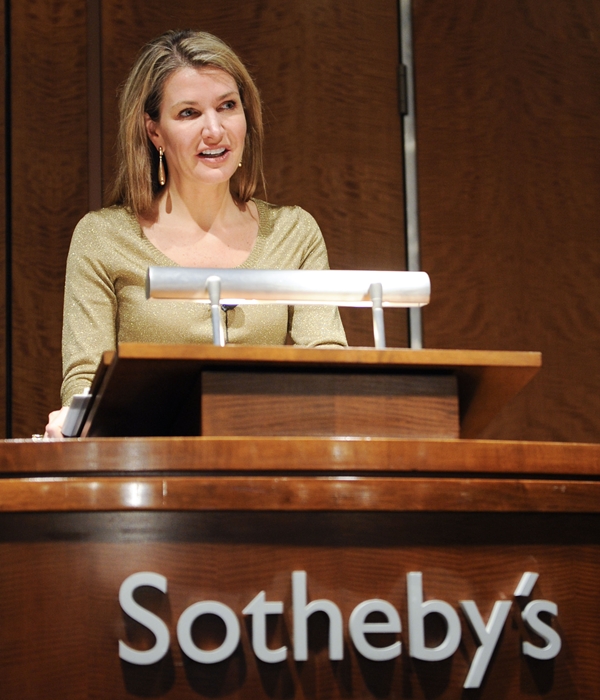
Sotheby’s private sales have plunged following the auctioneer’s public feud with activist investor Daniel Loeb.
Long a focus of company executives, private sales tumbled 48 percent in the first half of the year, according to an August 8 Securities and Exchange Commission filing. The value of private transactions, in which Sotheby’s discretely brokers art and other collectibles to one prospective purchaser at a time, dived to $294 million in the first half of 2014 from $561 million a year earlier. It was the lowest private sales total since 2010. The drop contributed to a 15 percent decline in quarterly earnings and an 8 percent drop in Sotheby’s stock on Friday. The shares are off 15 percent in the past year, as the benchmark Standard & Poor’s 500 Index rallied 15 percent.
Before Loeb and Sotheby’s tabled their seven-month feud in May with an agreement to add board seats for him and two allies, Loeb wasn’t exactly hyping the company. He cited Sotheby’s “cultural malaise,’’ “mediocre performance,’’ and a “crisis of leadership’’ that resulted in “dysfunctional divisions and a fractured culture,” among other critiques. He initially called for chief executive William Ruprecht to resign but later tempered his criticism of the man.
Jeff Rabin, a principal with Artvest Partners, which provides investment advice for the art market, said Christie’s had been leading Sotheby’s in many areas for years. “The uncertainty around the future management and direction of Sotheby’s has very likely caused some hesitation for clients,’’ he said. Similarly, Karen Boyer, an art adviser, said the conflict may have made the company appear less stable. “People might not have wanted to be associated with Sotheby’s at the time of the fight,’’ she said. The departure at year-end of its chief auctioneer, Tobias Meyer, may also have undermined private sales, she said. “I think part of the problem is the same as Sotheby’s has faced at auction—Christie’s is winning the bigger ticket items,’’ she said.
Increasing private sales and thus diversifying revenue has been “a strategic imperative” for the auctioneer, said William Sheridan, Sotheby’s then–chief financial officer, in a November 2012 conference call. Just six months ago, Ruprecht boasted that private sales were approaching 20 percent of consolidated sales. No longer.
In the first half of this year, private sales accounted for 8 percent of Sotheby’s overall sales. Private sales commissions for 2014’s first half were $30 million, down by a quarter from a year earlier.
Besides accentuating the positive, Sotheby’s hasn’t offered many explanations about the setback. In an August 8 press release summarizing its results for the year’s first half, it highlighted a 41 percent jump in the number of private transactions while ignoring the dollar value slump.
Chief financial officer Patrick McClymont noted in a conference call that day, without elaborating, that “2014 has not seen the big ticket sales which drove prior year results.” Nanne Dekking, a vice president at the dealer Wildenstein & Co. who took over Sotheby’s private sales in September 2013, was traveling yesterday and couldn’t comment, said a Sotheby’s spokesman, Andrew Gully. Elissa Doyle, a spokesperson for Loeb’s Third Point LLC, declined to comment.
In its favor, Sotheby’s has a “superlative” brand, Rabin said. “The future is wide open but change is almost certainly going to take longer than many think,” he said. Wendy Cromwell, an art adviser and president of the Association of Professional Art Advisors, attributed Sotheby’s private sales struggle to high asking prices rather than fallout from Loeb’s campaign. Robust evening auctions created unrealistic expectations among consignors, she said. “There’s a false sense that these prices can be achieved outside the auction setting,” she said.
Ruprecht in last week’s conference call described Sotheby’s “pipeline” of future private sales as “reasonable.” “So I don’t see any particular thunder clouds there,” Ruprecht said. “It’s a chunky and unpredictable business.”